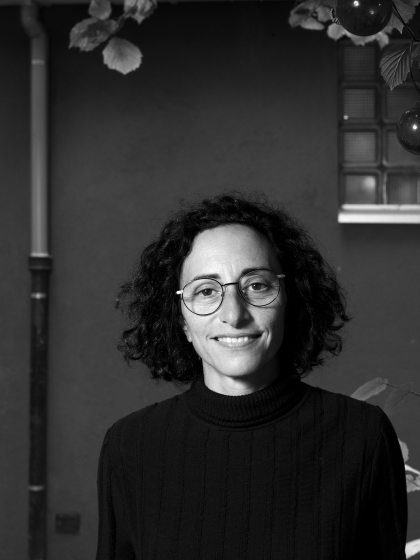L. (Lucy) Avraamidou, Prof

Externally Funded Research Projects
1. Youth-Move: Youth-centric Mobility and Activity in the 15-minute City (EU DUT, 2026-2028, 3 million euros)
2. ENERGISE: Enhancing Gender Inclusive STEM Education to Ensure the EU's Sustainability and Competitive Edge (EU E+ KA2, 2025-2028, 400,000 euros)
3. ACT-AI: European Academy for teachers’ skills and competences development for an effective AI Integration in education (EU Teachers' Academy, 2025-2028, 1.2 million euros)
4. MINDGUARD: Participatory and digitally empowered mental health prevention framework for academic settings (EU E+ KA2, 2024-2027, 400,000 euros)
5. TINKER: An authentic learning and gender-inclusive framework for Informatics (EU Erasmus+ 2023-2026, 1.2 million euros)
6. UP-STEAM: Upskilling Prospective Teachers in STEAM for elevating out-of-school learning for all (EU-Erasmus+ KA2, 2023-2026, 400,000 euros)
7. INFINITE: CRITICAL AI USE IN HIGHER EDUCATION (EU E+ KA2, 2023-2026, budget, 400,000 euros)
8. MAMMOTH: Tackling race-, gender- and other biases in Artificial Intelligence (EU-H2020, 2022-2025, Budget 3.3 million)
9. OTTER: Outdoor Science Education for a Sustainable Future (EU-H2020, 2021-2024, Budget 1.6 million euros)
10. Scientists and public engagement (EU-Erasmus+ KA2, 2022-2024, Budget: 250,000 euros)
11. Sustainable mobility in school education (EU-Erasmus+ KA2, 2022-2024, Budget 250,000)
12. STEAM4ALL: Towards an Inclusive STEAM program for all (EU-Erasmus + KA2, 2022-2024, Budget: 228,000 euros)
13. STEM-DIGITALIS: STEM DIGITAL LEARNING IN HIGHER EDUCATION (EU-Erasmus+ KA2, 2021-2023; Budget: 288.000 euros)
14. ALL-INTERACT: Widening and diversifying citizen engagement with science (EU-H2020, 2020-2023; Budget: 1.1 million euros)
15. Generation AI: Teaching children with/about Artificial Intelligence (EU-Erasmus+ KA2, 2020-2022, Budget 275.440 euros)
16. Using Mobile Augmented Reality Games to Develop Key Competencies through Learning about Sustainable Development (EU-Erasmus+ KA2, 2019-2021, 2019-2021; Budget: 287,000 euros)
17. Preparing Teachers and Students for a Digital World (EU-Erasmus+ KA2, 2019-2021; Budget: 286,000 euros)
